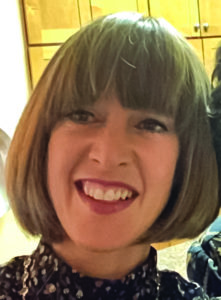Media: Yael Zelinger (Courtesy of Zelinger)
By Guest Contributor Yael Zelinger
October 15, 20211
Baltimore Jewish Times
“Ouch!” yelled my 12-year-old son, Elijah, when he arrived home from camp after I gave him a big hug. He mumbled something about getting hurt in camp and then went on to eat everything in the fridge. Later that evening as I sat on my son’s bed talking about his day, he relayed that a fellow camper was angry and had bitten him on the arm. While it didn’t break any skin, it really hurt, and my son cried to his counselor. The counselor took care of Elijah and assured him he would talk to the perpetrator. Elijah never heard about it again.
It made me wonder… What would I have liked his counselor to have done? As an advocate for people with disabilities and mental illness at the Macks Center for Jewish Education, I am familiar with this kind of behavior and always preach understanding and even appreciation of people with behaviors that deviate from the norm, even when those behaviors are hurtful, annoying or physically painful. What kind of reaction and follow up would be ideal in this situation? I would like to explore my feelings as I am torn between compassion for my son and respect for the child who cannot always control his behavior.
My mentor on all things related to people with disabilities is the director of disability and inclusion services at CJE, Rachel Turniansky. I told her that I tried to convey to Elijah that this boy must be a “troubled” child. Rachel pointed out that even that word has a negative connotation. I learned to reframe the incident by noting that everyone has things that they are good at and things they are not so good at. In our situation, this boy clearly has challenges — whether it is a disability or mental illness that hampers his ability to control his behavior, or whether he has challenges in his life that make it hard for him to control his anger. He probably has things that he is also very good at. While I wouldn’t expect my son to necessarily reach out to the perpetrator to find out what those strengths are, I would very much like him to see that the boy is a whole person and cannot be defined just by this one act.
I recently heard the following true story from a mom that demonstrates that we can learn for ourselves and teach our children to look past a behavior and see a person who might have a challenge that makes him do unusual things.
A mother of an adult child with severe disabilities, Rebecca, related that one night she got a call from a mother in her younger son’s class. The caller said, “I heard that my son punched your son in school today and I wanted to apologize and find out what happened.” Rebecca was surprised because she had not heard about the incident from her own child. Rebecca called her son over and asked what had happened and he replied, “We were playing baseball and the other boy got out but didn’t want to admit it. I told him he was out, and he punched my arm.” His mother asked, “What did you do?”
His response should be recorded for posterity.
This young boy, who was raised with this sensitivity, replied, “I looked into his eyes and saw that he was not well, so I walked away.”
I learned from this that when children are exposed to respectful attitudes and respectful language at a young age, they can become better at appreciating everyone’s differences. And that makes all the difference.
I want to model that kind of consideration for people with differences — even when they annoy me — because if I just discount them, I will never learn what their talents and hobbies are and whether we might have become friends.
This year, my pet project, B’More Inclusive: Disability and Mental Illness Awareness Experiences with a Jewish Lens, a program of the Macks Center, will be focusing on the language all school personnel use around children with special needs and mental illness. Now you know why.
Yael Zelinger has served as a disability and inclusion associate at the Macks Center for Jewish Education since 1999.




